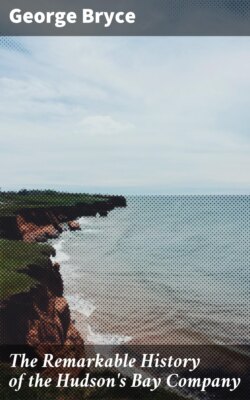Читать книгу The Remarkable History of the Hudson's Bay Company - Bryce George - Страница 20
На сайте Литреса книга снята с продажи.
CHAPTER XIV.
ОглавлениеTable of Contents
THE NORTH-WEST COMPANY FORMED.
Hudson's Bay Company aggressive—The great McTavish—The Frobishers—Pond and Pangman dissatisfied—Gregory and McLeod—Strength of the North-West Company—Vessels to be built—New route from Lake Superior sought—Good-will at times—Bloody Pond—Wider union, 1787—Fort Alexandria—Mouth of the Souris—Enormous fur trade—Wealthy Nor'-Westers—"The Haunted House."
The terrible scourge of smallpox cut off one-half, some say one-third of the Indian population of the fur country. This was a severe blow to the prosperity of the fur trade, as the traders largely depended on the Indians as trappers. The determination shown by the Hudson's Bay Company, and the zeal with which they took advantage of an early access to the Northern Indians, were a surprise to the Montreal traders, and we find in the writings of the time, frequent expressions as to the loss of profits produced by the competition in the fur trade.
The leading fur merchants of Montreal determined on a combination of their forces. Chief among the stronger houses were the Frobishers. Joseph Frobisher had returned from his two years' expedition in 1776, "having secured what was in those days counted a competent fortune," and was one of the "characters" of the commercial capital of Canada.
The strongest factor in the combination was probably Simon McTavish, of whom a writer has said "that he may be regarded as the founder of the famous North-West Company." McTavish, born in 1750, was a Highlander of enormous energy and decision of character. While by his force of will rousing opposition, yet he had excellent business capacity, and it was he who suggested the cessation of rivalries and strife among themselves and the union of their forces by the Canadian traders.
